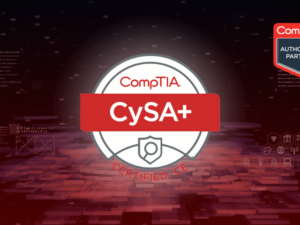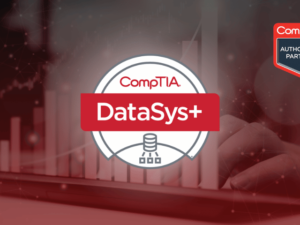Certified Incident Handler (ECIH)
- Description
- Reviews

CERTIFIED INCIDENT HANDLER (ECIH) v3
COURSE DESCRIPTION
The E|CIH (EC-Council Certified Incident Handler) program equips students with the knowledge, skills, and abilities to effectively prepare for, deal with, and eradicate threats and threat actors in an incident. This program provides the entire process of incident handling and response and hands-on labs that teach the tactical procedures and techniques required to effectively plan, record, triage, notify and contain. Students will learn the handling of various types of incidents, risk assessment methodologies, as well as laws and policies related to incident handling. After attending the course, students will be able to create IH&R policies and deal with different types of security incidents such as malware, email security, network security, web application security, cloud security, and insider threat-related incidents.
WHO IS IT FOR:
The incident handling skills taught in E|CIH are complementary to the job roles below as well as many other cybersecurity jobs:
- Penetration Testers
- Vulnerability Assessment Auditors
- Risk Assessment Administrators
- Network Administrators
- Application Security Engineers
- Cyber Forensic Investigators/ Analyst and SOC Analyst
- System Administrators/Engineers
- Firewall Administrators and Network Managers/IT Managers
COURSE OUTLINE
Module 01: Introduction to Incident Handling and Response
- Understand Information Security Threats and Attack Vectors
- Explain Various Attack and Defense Frameworks
- Understand Information Security Concepts
- Understand Information Security Incidents
- Understand the Incident Management Process
- Understand Incident Response Automation and Orchestration
- Describe Various Incident Handling and Response Best Practices
- Explain Various Standards Related to Incident Handling and Response
- Explain Various Cybersecurity Frameworks
- Understand Incident Handling Laws and Legal Compliance
Module 02: Incident Handling and Response Process
- Understand Incident Handling and Response (IH&R) Process
- Explain Preparation Steps for Incident Handling and Response
- Understand Incident Recording and Assignment
- Understand Incident Triage
- Explain the Process of Notification
- Understand the Process of Containment
- Describe Evidence Gathering and Forensics Analysis
- Explain the Process of Eradication
- Understand the Process of Recovery
- Describe Various Post-Incident Activities
- Explain the Importance of Information Sharing Activities
Module 03: First Response
- Explain the Concept of First Response
- Understand the Process of Securing and Documenting the Crime Scene
- Understand the Process of Collecting Evidence at the Crime Scene
- Explain the Process for Preserving, Packaging, and Transporting Evidence
Module 04: Handling and Responding to Malware Incidents
- Understand the Handling of Malware Incidents
- Explain Preparation for Handling Malware Incidents
- Understand Detection of Malware Incidents
- Explain Containment of Malware Incidents
- Describe How to Perform Malware Analysis
- Understand Eradication of Malware Incidents
- Explain Recovery after Malware Incidents
- Understand the Handling of Malware Incidents – Case Study
- Describe Best Practices against Malware Incidents
Module 05: Handling and Responding to Email Security Incidents
- Understand Email Security Incidents
- Explain Preparation Steps for Handling Email Security Incidents
- Understand Detection and Containment of Email Security Incidents
- Understand Analysis of Email Security Incidents
- Explain Eradication of Email Security Incidents
- Understand the Process of Recovery after Email Security Incidents
- Understand the Handling of Email Security Incidents – Case Study
- Explain Best Practices against Email Security Incidents
Module 06: Handling and Responding to Network Security Incidents
- Understand the Handling of Network Security Incidents
- Prepare to Handle Network Security Incidents
- Understand Detection and Validation of Network Security Incidents
- Understand the Handling of Unauthorized Access Incidents
- Understand the Handling of Inappropriate Usage Incidents
- Understand the Handling of Denial-of-Service Incidents
- Understand the Handling of Wireless Network Security Incidents
- Understand the Handling of Network Security Incidents – Case Study
- Describe Best Practices against Network Security Incidents
Module 07: Handling and Responding to Web Application Security Incidents
- Understand the Handling of Web Application Incidents
- Explain Preparation for Handling Web Application Security Incidents
- Understand Detection and Containment of Web Application Security Incidents
- Explain Analysis of Web Application Security Incidents
- Understand Eradication of Web Application Security Incidents
- Explain Recovery after Web Application Security Incidents
- Understand the Handling of Web Application Security Incidents – Case Study
- Describe Best Practices for Securing Web Applications
Module 08: Handling and Responding to Cloud Security Incidents
- Understand the Handling of Cloud Security Incidents
- Explain Various Steps Involved in Handling Cloud Security Incidents
- Understand How to Handle Azure Security Incidents
- Understand How to Handle AWS Security Incidents
- Understand How to Handle Google Cloud Security Incidents
- Understand the Handling of Cloud Security Incidents – Case Study
- Explain Best Practices against Cloud Security Incidents
Module 09: Handling and Responding to Insider Threats
- Understand the Handling of Insider Threats
- Explain Preparation Steps for Handling Insider Threats
- Understand Detection and Containment of Insider Threats
- Explain Analysis of Insider Threats
- Understand Eradication of Insider Threats
- Understand the Process of Recovery after Insider Attacks
- Understand the Handling of Insider Threats – Case Study
- Describe Best Practices Against Insider Threats
Module 10: Handling and Responding to Endpoint Security Incidents
- Understand the Handling of Endpoint Security Incidents
- Explain the Handling of Mobile-based Security Incidents
- Explain the Handling of IoT-based Security Incidents
- Explain the Handling of OT-based Security Incidents
- Understand the Handling of Endpoint Security Incidents – Case Study
Please contact us for the full course outline, schedules, and for booking a private class.
Request a Quote
Popular Courses
Archive
Working hours
| Monday | 9:00 am - 6.00 pm |
| Tuesday | 9:00 am - 6.00 pm |
| Wednesday | 9:00 am - 6.00 pm |
| Thursday | 9:00 am - 6.00 pm |
| Friday | 9:00 am - 6.00 pm |
| Saturday | Closed |
| Sunday | Closed |










